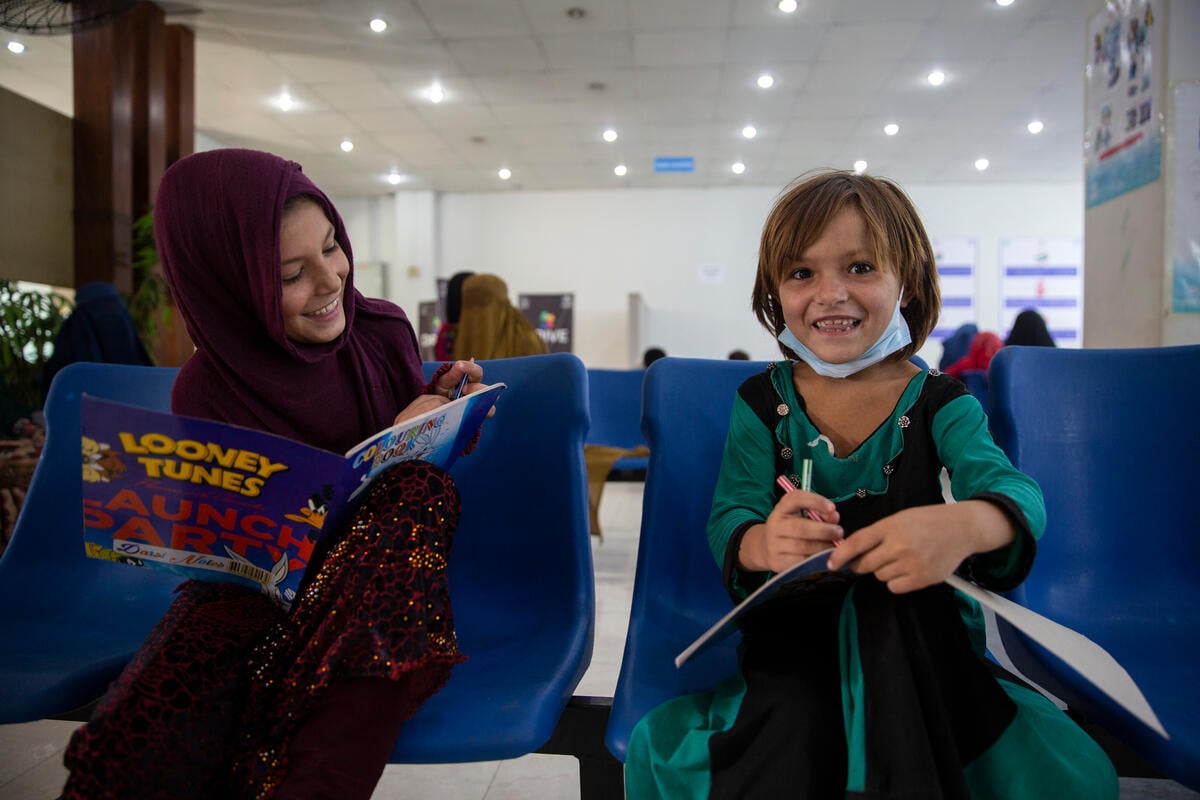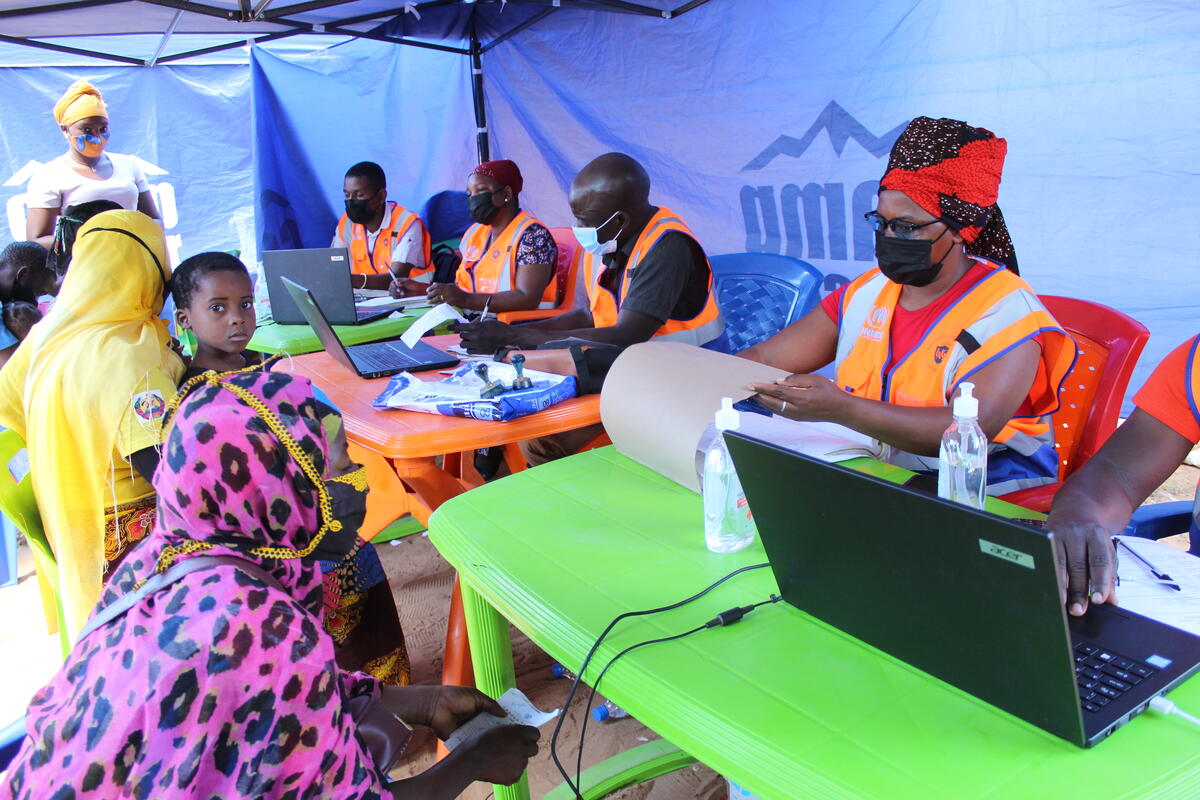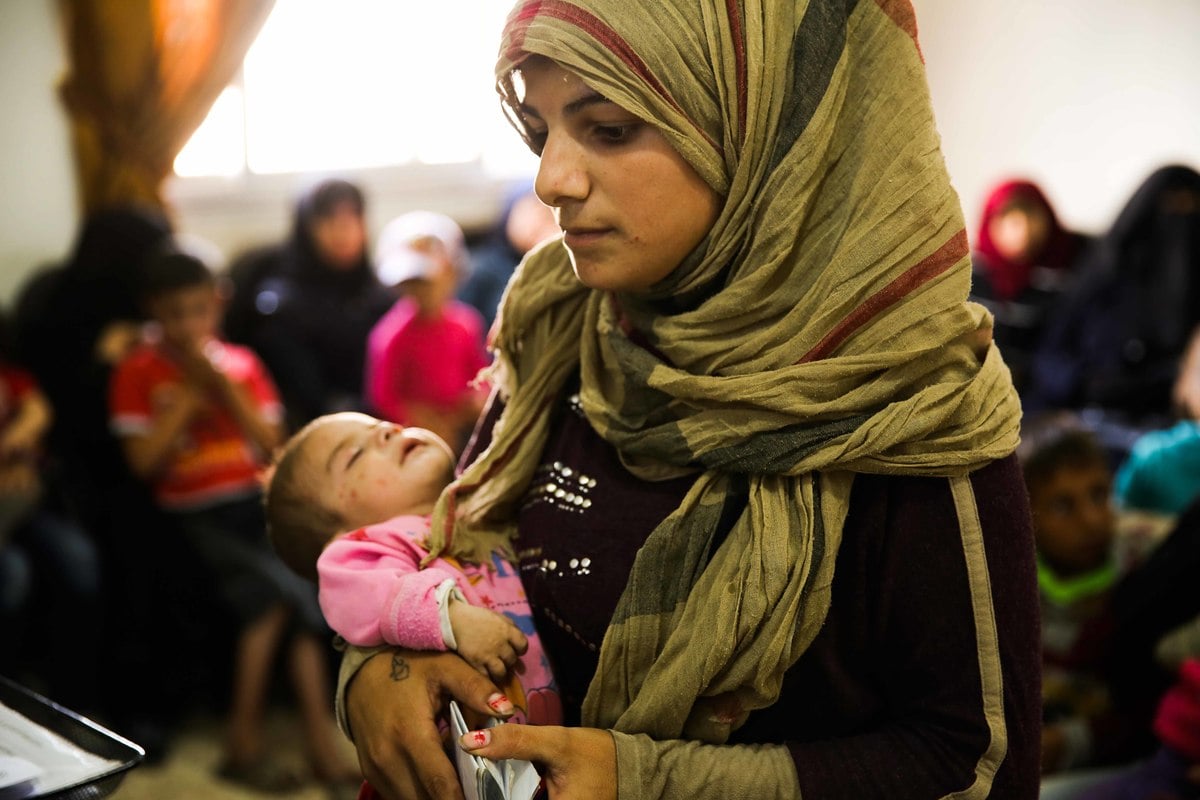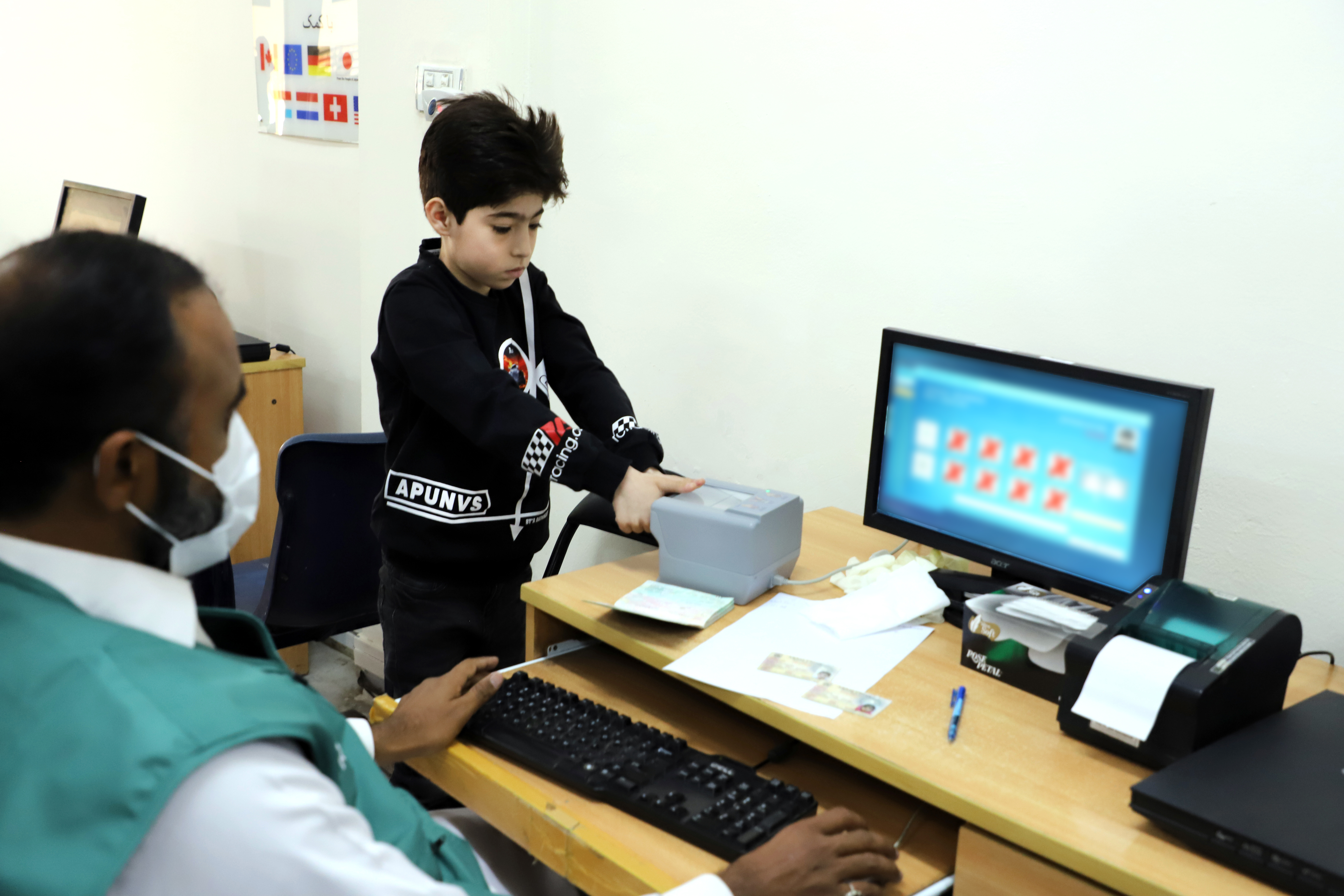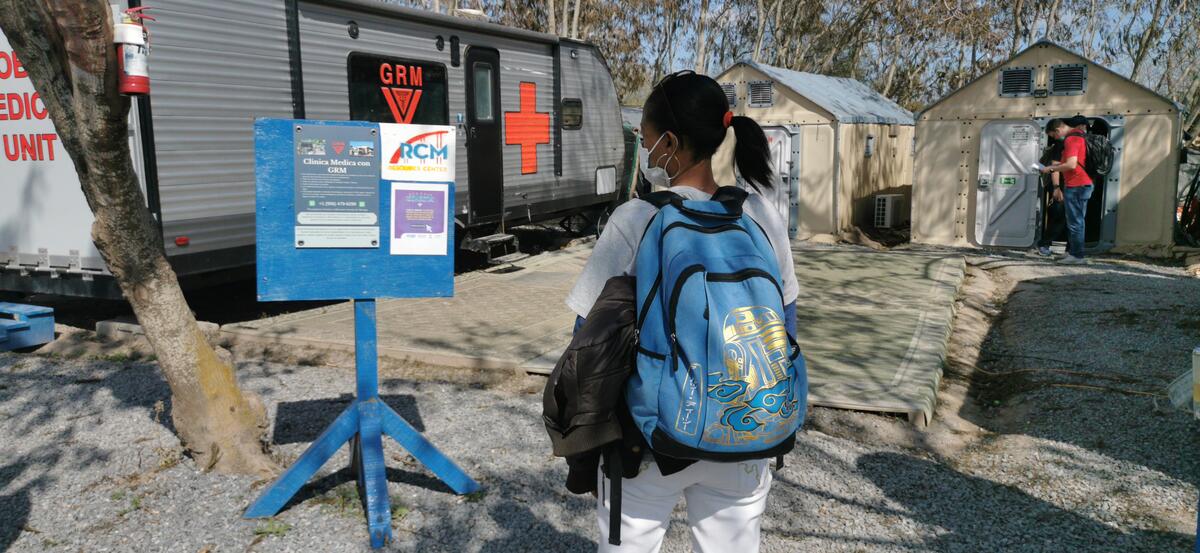Congolese refugees in Zambia keen to hear about conditions back home
Congolese refugees in Zambia keen to hear about conditions back home

LUSAKA, Zambia, October 15 (UNHCR) - Six Congolese were mobbed by fellow refugees eager for news earlier this month when they returned to camps in northern Zambia after paying a "go-and-see" visit to their home areas in the eastern Democratic Republic of the Congo (DRC).
The visit to Moba district abutting Lake Tanganyika was organized by the UN refugee agency as part of efforts to promote the repatriation over the next two years of some 30,000 Congolese refugees living in the Kala and Mwange camps.
"The six refugees [three men and three women] had a first-hand look at conditions and reintegration programmes in their home areas in the Moba district of Katanga province," said James Lynch, UNHCR's representative in Zambia, who travelled with the refugees. "Last Friday they held the first in a series of meetings with fellow refugees in Kala and Mwange," he added.
Isaac Ndala, a senior UNHCR field clerk who is coordinating the meetings, said refugees in the camps had mobbed the six because they were so keen to hear first-hand impressions about the situation back home after years in exile.
"We'll continue with these meetings in the two camps for the whole of this week. It is hoped that those refugees who are still hesitant will be persuaded to consider returning home," said Ndala.
The six refugees who took part in the go-and-see visit were chosen from both camps, which are located some 300 kilometres from the border with DRC. They represented a good cross-section of the refugee population in the two camps. They travelled by road to Moba via the town of Pweto.
Upon arrival in Moba town, the group was met by representatives of the UNHCR sub-office and local authorities. Arrangements were made to visit various villages within the Moba area; meet relatives; and look at health, water and education facilities. The refugees also discussed issues such as land and housing with returnees and the local authorities. The group of six, most of whom fled DRC almost a decade ago, had tearful reunions with relatives and friends.
"While the decision to repatriate is voluntary, we hope that showing refugees the reintegration process first-hand will raise interest in repatriation," said Lynch. "It was very moving to see the emotions of the visiting refugees on meeting former camp residents with whom they had fled DRC and who had returned home and were doing very well."
UNHCR in Zambia has stepped up an information campaign aimed at encouraging the Congolese refugees to return home before the rainy season starts in December and return voyages by vehicle and boat are suspended for about five months.
Since UNHCR's voluntary repatriation programme began in 2007, more than 14,300 Congolese refugees have returned home with the agency's help from Zambia. UNHCR hopes to help another 30,000 Congolese return home over the next two years. The International Organization for Migration (IOM) arranges transportation, while the World Food Programme (WFP) provides food to the returnees.
Zambia currently hosts more than 86,000 refugees, including around 56,000 in camps. Congolese make up the majority of refugees - some 50,000 - followed by Angolans (27,000) and smaller numbers from Rwanda, Burundi and Somalia.
By Kelvin Shimo in Lusaka, Zambia


